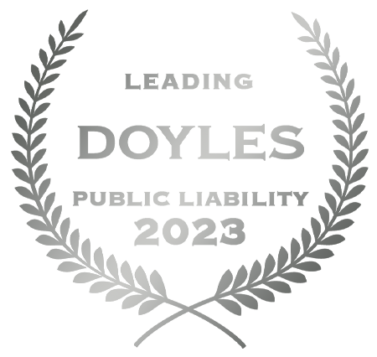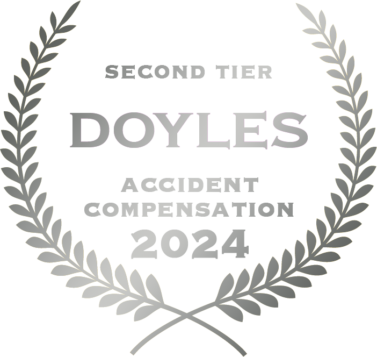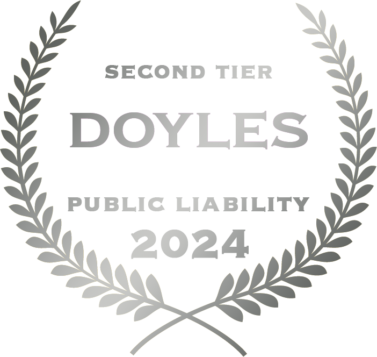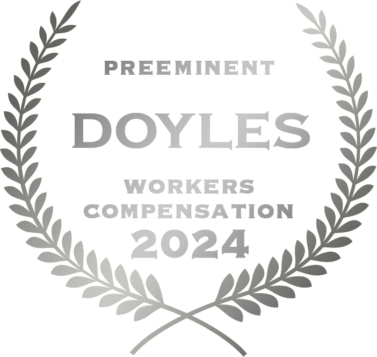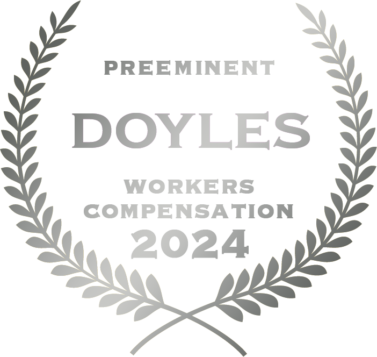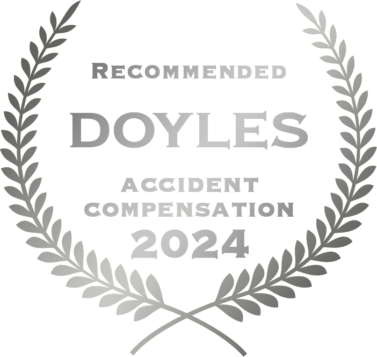
Terminating an Injured Employee on Workers Compensation in NSW – is it Legal?
There are strict rules around terminating an injured employee in NSW. Employers must meet all their obligations to injured workers first, and there’s a ‘protected period’ when it’s not legal to terminate an injured employee.

If you’ve been terminated or made redundant while you were on workers compensation, this article explains everything you need to know about:
- Your employer’s obligations to you
- Whether your termination was legal
- Whether you’re still eligible for workers compensation after your termination
- Whether you can seek reinstatement to your job
Can an injured employee be terminated while on workers compensation in NSW?
It’s illegal for an employer to terminate an injured employee in NSW within the first six months of an injury purely because they’re unfit to resume work. This first six months is referred to as the ‘protected period’
After this protected period, your employer is still obliged to do everything possible to help you get back to work. Your employer’s obligations to you include:
- Playing an active role in developing your injury management plan to get you back to work.
- Complying with their obligations set out in the injury management plan.
- Providing you with suitable work duties, wherever practically reasonable, once you’re cleared to return to work under certain restrictions.
- Providing you with suitable work duties, wherever practically reasonable, that are similar to the work you performed prior to your injury.
What happens to me after the protected period?
It’s in your employer’s best interests to help you get back to work. By helping injured employees get back to work, employers maintain the skills and knowledge of their experienced workers, reduce recruiting and training costs, and generally do the right thing by their staff. So, working with your employer to get back to work is always the preferred option.
However, if your employer has failed to meet their obligations to you, then you have the option to refer them to the workers compensation insurer and the State Insurance Regulatory Authority (SIRA). Failing to meet their obligations to you could put your employer at risk of fines in excess of $11,000.
Can you sue if you’re terminated while on workers compensation/WorkCover?
You don’t need to sue your employer to receive your treatment expenses and weekly benefits if you’re injured at work – these are covered by workers compensation insurance, which all employers pay for.
However, being terminated doesn’t stop you from suing for work injury damages if your injury was caused by your employer’s negligence. A work injury damages claim is for a lump sum payout for past and future loss of earnings, and these lump sums can be substantial.
To qualify for this lump sum your whole person impairment rating will need to be assessed at 15% or more. If you think you might be entitled to a work injury damages lump sum, you should seek legal advice from a specialist workers compensation lawyer.
At Law Partners, we have a large team of specialist workers compensation lawyers with extensive experience in work injury damages claims. We work on a no win no fee basis, and we win over 99% of our cases.
What happens to my entitlements if I’m terminated while on workers compensation?
If you’re terminated for not being able to do your job because of your injuries, and you’ve been receiving workers compensation benefits, you’ll keep receiving benefits as long as your doctor certifies that you’re still unfit to carry out your pre-injury duties.
If your employer was paying your weekly benefits they’ll stop, and the workers compensation insurer will start paying your benefits directly to you.
| Work Capacity | Entitlements |
| Unfit to return to work altogether | You’ll continue to receive reasonably necessary medical treatment and weekly benefits in accordance with your entitlement period. |
| Certified unfit for pre-injury duties but fit for suitable duties | You’ll continue to receive pro-rated medical treatment and weekly benefits in accordance with your entitlement period* |
*For example, if your full-time hours are 40 hours/week but you’re only fit to work 20, you’ll receive weekly benefits for 20 hours/week in line with your entitlement period.
Call 13 15 15 or chat to us now for free advice
Chat nowFind out how much you can claim.
Get startedRedundancy while on workers compensation – what are my rights?
If your job is made redundant while you’re on workers compensation, then your employer still needs to comply with the rules around redundancy. This may include:
- Complying with the minimum notice or paying out your minimum notice period
- Paying out any other entitlements, including redundancy pay if it applies
- Talking to you about workplace changes that will affect your job as the decision is made, not when you return to work from workers compensation.
If you’re covered by an award, enterprise agreement, other registered agreement or employment contract, you should check if you have different notice of termination entitlements for when you’re away from work on workers compensation as you may be entitled to payment in lieu of notice.
Can I be reinstated after being terminated while on workers compensation?
If you were terminated purely because you were unfit for work due to your work injuries, you may be able to apply for reinstatement when you’re fit again.
- The first step is to ask your employer for reinstatement to a position equivalent to the one you held before you were injured.
- If your employer doesn’t reinstate you, you may apply to the Industrial Relations Commission (IRC) for a reinstatement order. You’ll need a doctor to certify that you’re fit to resume your pre-injury duties, and you’ll need to apply to the IRC within two years of your termination.
Where can you get legal advice if you’ve been terminated while on workers compensation in NSW?
If you’ve been terminated or made redundant whilst on workers compensation and you have questions or concerns about your entitlements, you can call 13 15 15 and get free legal advice from a specialist workers compensation lawyer.

Robert Hopper
Managing Solicitor
An accredited specialist in personal injury law, backed by over 15 years’ experience in assisting injured Australians receive everything they’re entitled to with their workers compensation claim.
Do I have a case?
Our senior lawyers will assess your case for free.



